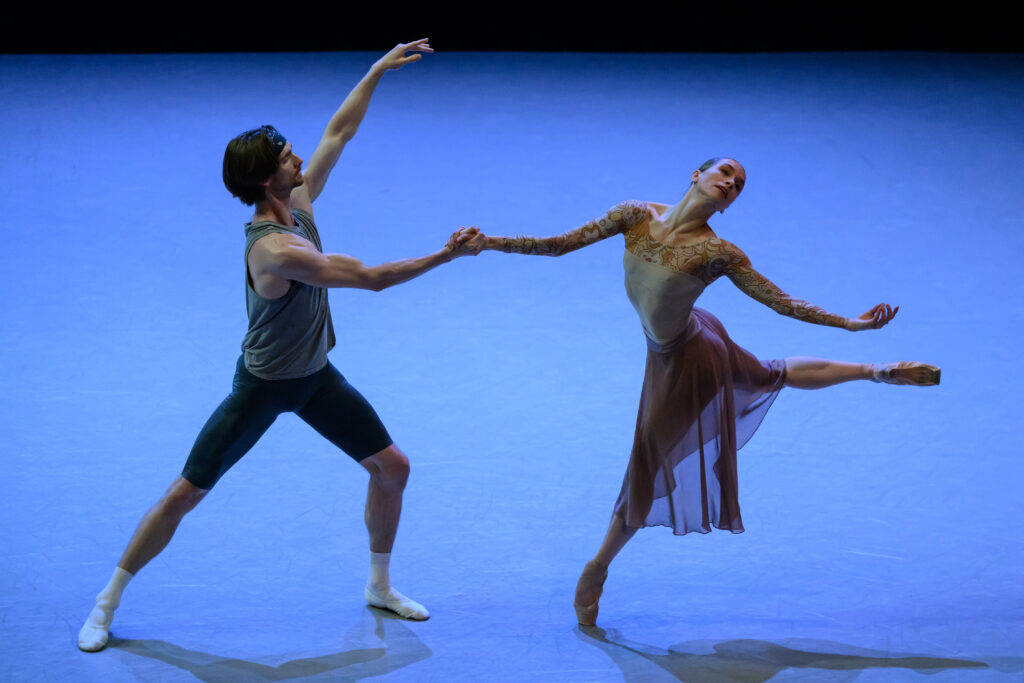
Monte-Carlo Ballet in Alexei Ratmansky’s Wartime Elegy
Monte-Carlo Ballet takes to the stage this month with a three-part programme which closes the Printemps des Arts de Monte-Carlo festival. Accompanied by the Monte-Carlo Philharmonic Orchestra, led by Jesko Sirvend, the company performs Balanchine’s The Four Temperaments, Ratmansky’s Wartime Elegy, and a new ballet by Marco Geocke Transfigured Night.
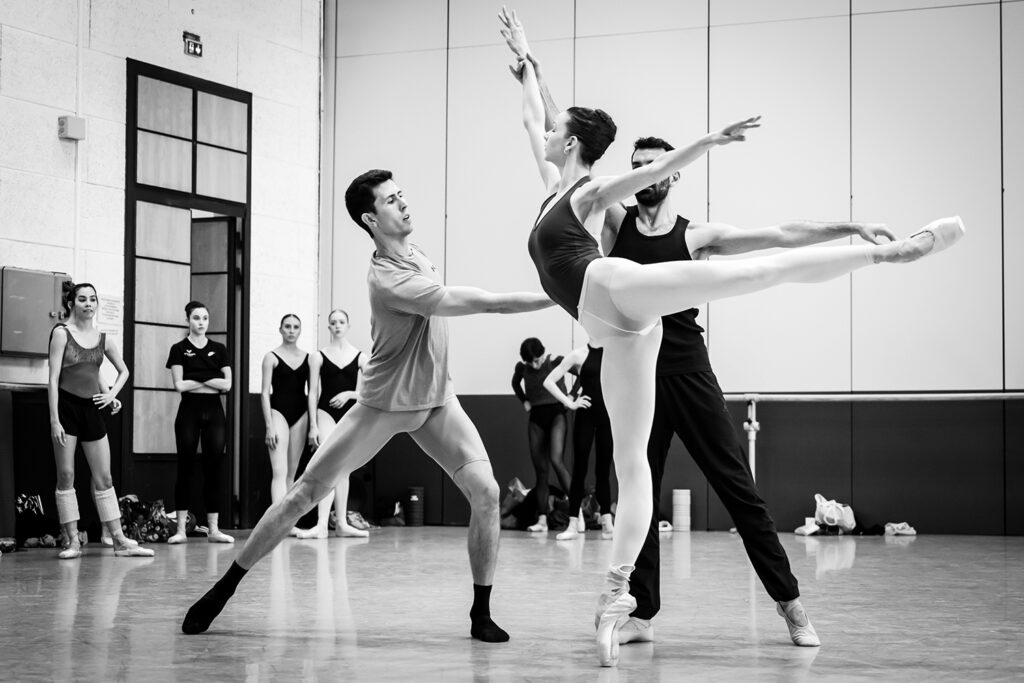
Balanchine’s The Four Temperaments
George Balanchine’s The Four Temperaments: Theme with Four Variations for String Orchestra and Piano, premiered in 1946, and was one of the master choreographer’s early experimental works. It was inspired by the medieval belief that human beings are characterised by one of four different temperaments, each one associated with the four classical elements – earth, air, water and fire: Melancholic (gloomy and pensive), Sanguinic (headstrong and passionate) Phlegmatic (unemotional and passive) and Choleric (bad-tempered and angry).
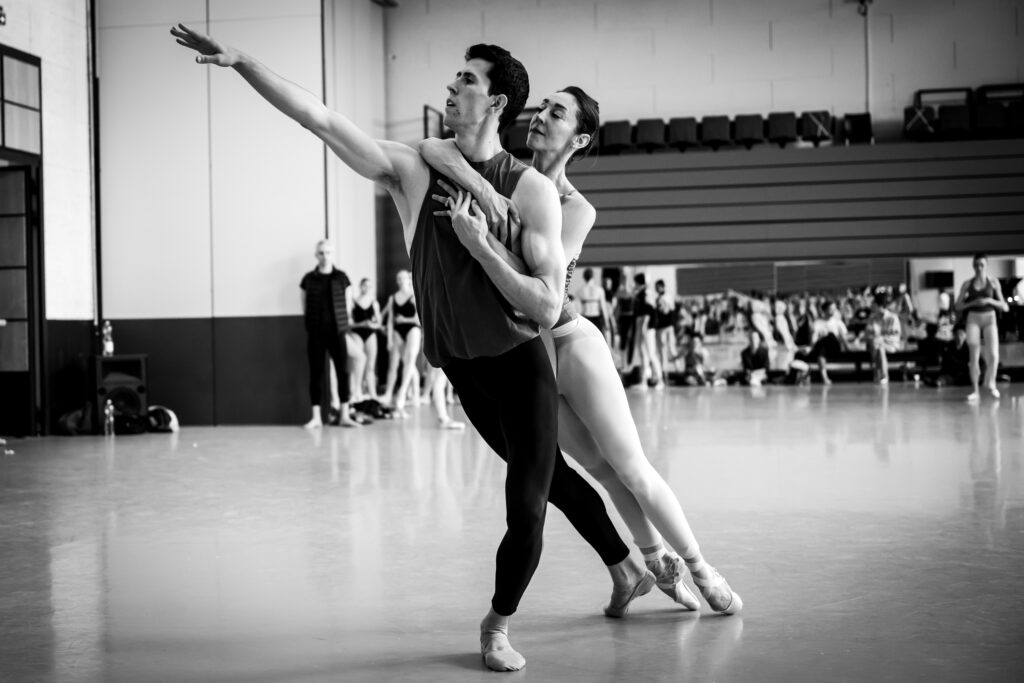
Balanchine’s The Four Temperaments
The ballet is set to the music of Paul Hindemith, a score commissioned by Balanchine who wanted a short work he could play to friends at home. It was completed 1940 and the first public performance took place in 1944 with soloist Lukas Foss. Hindemith, a conductor, violinist, violist, pianist and theorist, is regarded as one of the greatest German composers of the last century. This performance features French pianist David Bismuth.
Multi-award-winning Alexei Ratmansky, regarded as one of the great choreographers of our time, is currently Artist in Residence at New York City Ballet, a post he has held since 2023. He was Artist in Residence at American Ballet Theatre from 2009, and Artistic Director of the Bolshoi as of 2004. Having both Russian and Ukranian roots, he left the Bolshoi Theatre in Moscow, where he was choreographing a ballet, on 24th February 2022, in favour of supporting the Ukranian dance and ballet world.
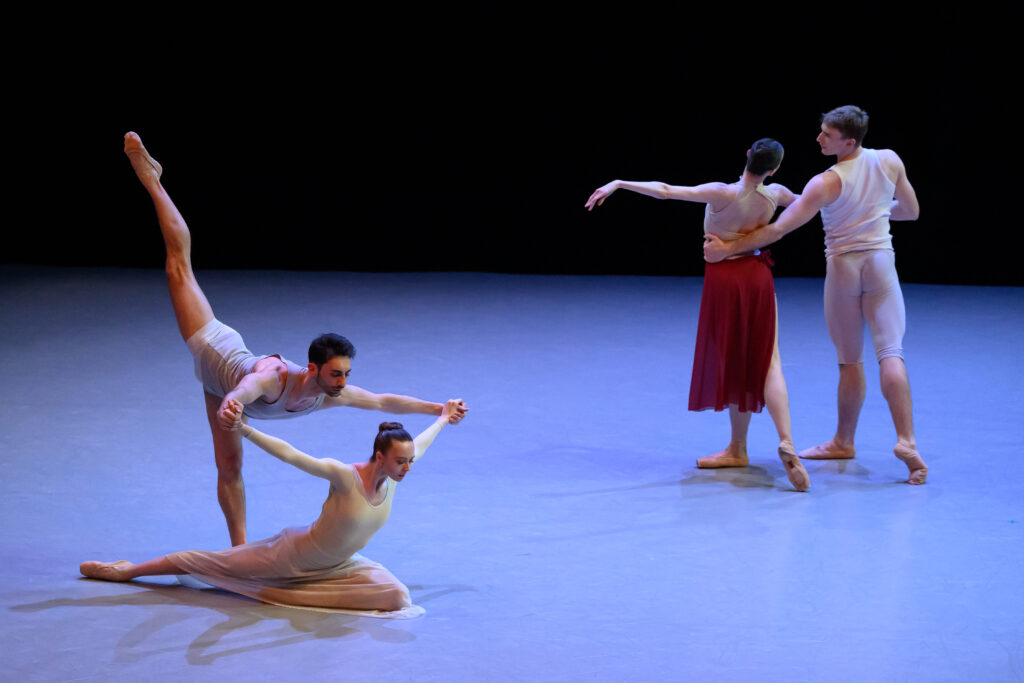
Wartime Elegy by Alexei Ratmansky
Ratmansky has choreographed ballets for companies such as the Mariinsky Ballet, the Royal Danish Ballet, the Royal Swedish Ballet, Dutch National Ballet, New York City Ballet, American Ballet Theatre, San Francisco Ballet, The Australian Ballet, Kiev Ballet and the State Ballet of Georgia, and also created works for Nina Ananiashvili, Diana Vishneva and Mikhail Baryshnikov.
Wartime Elegy, which was commissioned by Pacific Northwest Ballet, evokes the war and devastation which face the Ukrainian people. It’s not, however, purely about tragedy. The ballet features stories, dances, laughter, exuberance and the strength of community. It is set to Valentin Silvestrov’s Four Postludes for Piano and String Orchestra and two melodies from Ukrainian Village Music, Pidkamecka Kolomyjka and Nina Polka.
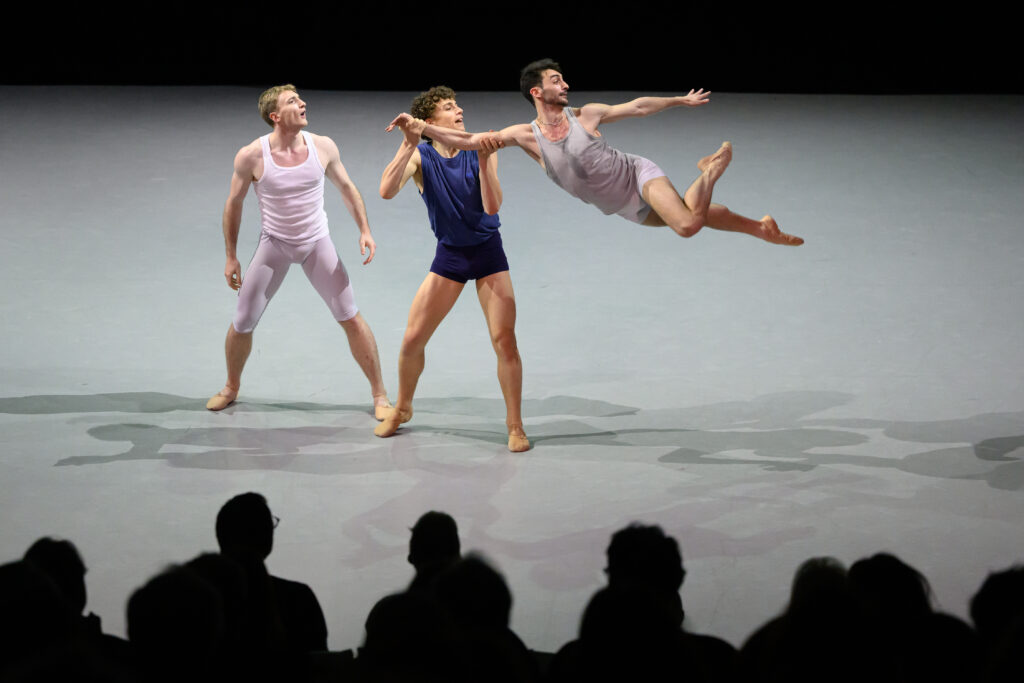
Ratmansky’s Wartime Elegy
The programme ends with the World Premiere of Marco Goecke’s Transfigured Night. Known for his frenetic and expressive style, multi-award-winning Geocke was for many years the in-house choreographer of the Stuttgart and Scapino ballets, he has also held roles such as Associate Choreographer at Nederlands Dans Theater, was Resident Artist at Gauthier Dance and Director of the Staatsballett Hannover. In the twenty years of his career, he has created more than 80 works, which include commissions for many international companies such as Les Ballets de Monte Carlo, the Paris State Opera Ballet, the Vienna State Ballet, the Norwegian National Ballet, the Pacific Northwest Ballet Seattle and the Bayerisches Staatsballet.
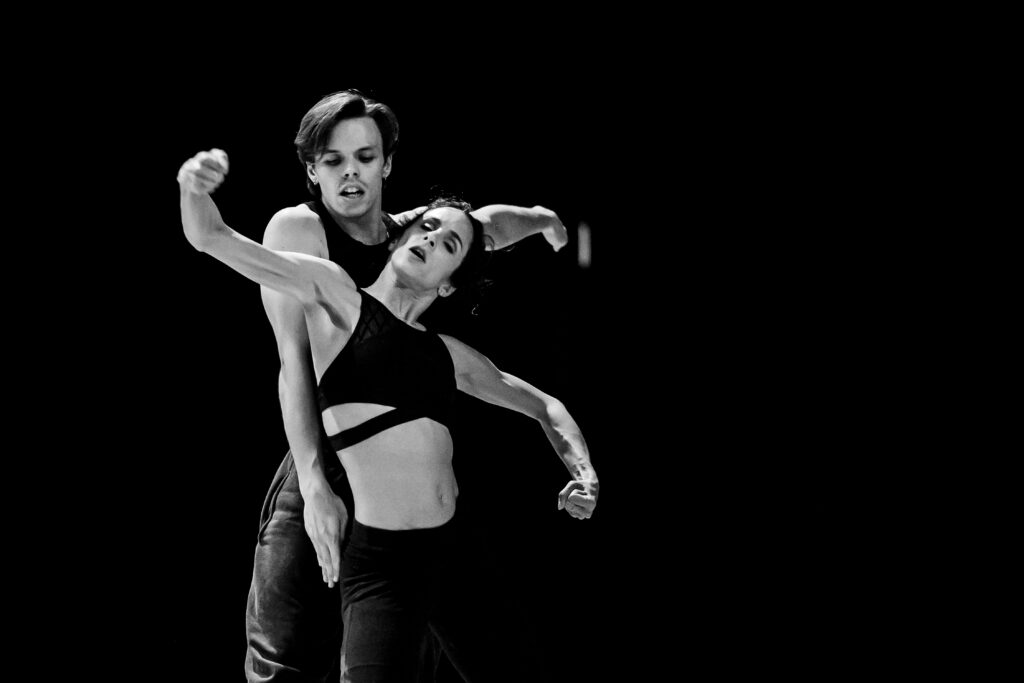
Scene from Marco Goecke’s Transfigured Night
Arnold Schoenberg, the Austrian and American composer, music theorist, teacher and writer, is credited with creating atonality – the absence of functional harmony in music – which emerged in the late 19th and early 20th centuries. His Transfigured Night, which he dedicated to his fiancée just before they married, is based on a short poem by Richard Dehmel, Verklärte Nacht. Written in 1896, Dehmel’s poem tells of a couple that is walking through a cold winter night. She tells him that she is pregnant by a stranger she met before she met him. She feels awkward, but he reassures her that their love will change the child – it will no longer be the child of a stranger but his own child. Their love makes the child theirs. The score, originally composed for string sextet, was arranged for orchestra in 1917.
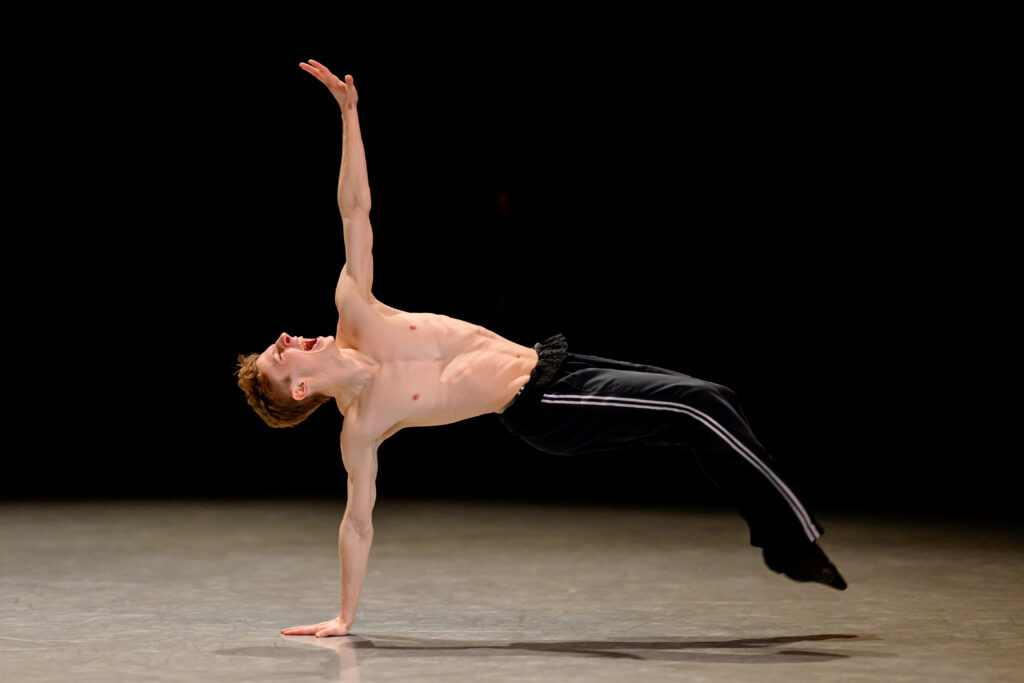
Goecke’s Transfigured Night
Jesko Sirvend, winner of the 2022 Yevgeny Svetlanov Conducting Competition in Monaco, leads the Monte-Carlo Philharmonic Orchestra in Monte-Carlo Ballet’s programme which closes this year’s Printemps des Arts de Monte-Carlo festival. It takes place at the Grimaldi Forum in Monaco on April 23, 24, 25, 26 and 27. For reservations, visit the Ballets de Monte-Carlo website.
All photographs – taken in rehearsal – by Alice Blangero
Information sourced from:
Ballets de Monte-Carlo programme notes

Leave a Reply